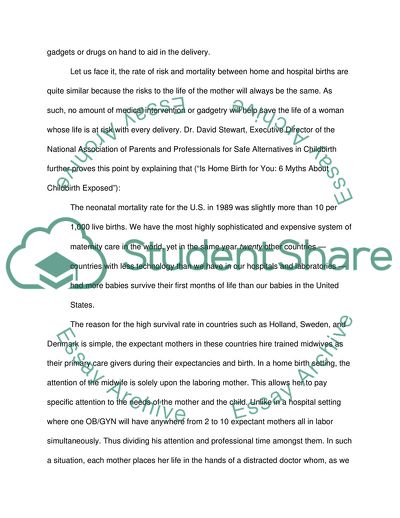Cite this document
(Home Births vs Hospital Births Research Paper Example | Topics and Well Written Essays - 1000 words - 1, n.d.)
Home Births vs Hospital Births Research Paper Example | Topics and Well Written Essays - 1000 words - 1. https://studentshare.org/medical-science/1788054-pros-and-cons-of-home-births-and-hospital-births
Home Births vs Hospital Births Research Paper Example | Topics and Well Written Essays - 1000 words - 1. https://studentshare.org/medical-science/1788054-pros-and-cons-of-home-births-and-hospital-births
(Home Births Vs Hospital Births Research Paper Example | Topics and Well Written Essays - 1000 Words - 1)
Home Births Vs Hospital Births Research Paper Example | Topics and Well Written Essays - 1000 Words - 1. https://studentshare.org/medical-science/1788054-pros-and-cons-of-home-births-and-hospital-births.
Home Births Vs Hospital Births Research Paper Example | Topics and Well Written Essays - 1000 Words - 1. https://studentshare.org/medical-science/1788054-pros-and-cons-of-home-births-and-hospital-births.
“Home Births Vs Hospital Births Research Paper Example | Topics and Well Written Essays - 1000 Words - 1”. https://studentshare.org/medical-science/1788054-pros-and-cons-of-home-births-and-hospital-births.


